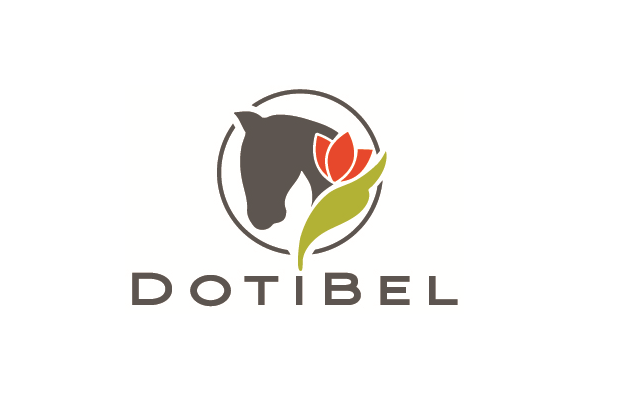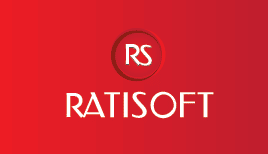Business Analytics
What is Business Intelligence (BI) and why is it important in market research?
Collection of market data using BI tools
Collecting market data is a key part of the research process that enables companies to understand the market, identify new opportunities and monitor trends. In the digital age, Business Intelligence (BI) tools offer advanced capabilities to collect data from a variety of sources. Online surveys are one of the primary tools to directly gather consumer opinions and preferences. Social media, on the other hand, provide rich insights into user behaviour and opinions in the natural environment. External data, such as industry reports or sales statistics, provide a broader market perspective.
BI tools, such as database management systems, data analysis software and visualisation tools, allow for the effective aggregation, processing and analysis of collected data. Using these tools, companies can carry out comprehensive analyses of trends, consumer behaviour and the effectiveness of their marketing activities.
To ensure the quality and reliability of the data, the use of appropriate verification and validation methods is key. This includes cleaning the data to remove duplicates and correct errors, as well as using statistical techniques to assess the representativeness and reliability of the information collected. In addition, it is important to use ethical data collection practices, including ensuring anonymity and protecting the privacy of respondents. In this way, by using BI tools, companies can not only collect market data efficiently, but also ensure its quality and reliability, which is the foundation of effective market research.
Data analysis in market research using BI
Data analysis in market research using Business Intelligence (BI) tools is a multi-step process that starts with data cleaning. Data cleaning involves identifying and removing errors, incomplete or ambiguous information, which is key to ensuring the reliability of the analyses. The next step is data integration, which is the consolidation of data from different sources to create a coherent set for analysis. Integration is followed by the actual data analysis, which can include descriptive statistical analysis, predictive modelling, customer segmentation, as well as advanced techniques such as machine learning.
Popular BI analytics tools used to analyse market data include QlikView, Microsoft Power BI, Tableau, SAS, and Oracle BI. These platforms offer a variety of functionalities, from simple dashboards and visualisations to advanced predictive and exploratory analysis. With these, analysts can discover patterns, identify trends and perform in-depth behavioural analysis.
An example of successful market data analysis using BI can be seen in one of our clients, which used the Power BI tool to analyse the purchasing behaviour of its customers. By analysing data from its loyalty programme, the company identified key customer segments and understood which products were most frequently purchased together. Based on this information, this company optimised its cross-selling and up-selling strategies, resulting in a significant increase in sales.
This example shows how using BI tools to analyse market data can bring real business benefits, from optimising product offerings to improving customer service and increasing sales.
Trends in BI-supported market research
In the digital age, business data has become the foundation on which companies build their strategy and competitiveness. Their role in business decision-making cannot be overestimated, as they allow key decisions to be based on a solid, empirical basis, rather than intuition or conjecture. Data offers insights into customer behaviour, operational performance, market trends and many other aspects that are essential for successful business management.
Examples of how data analytics impacts business success are ubiquitous. In the retail industry, customer data analytics allows offers and marketing communications to be tailored to better meet consumer needs and preferences, resulting in increased sales and customer loyalty. In the manufacturing sector, operational data analytics can lead to the optimisation of production processes, reducing costs and increasing productivity. In finance, data analytics allows for better risk management and the identification of new investment opportunities.
Additionally, in a business environment that is rapidly changing and fraught with uncertainty, data allows for faster response to market changes and adaptation of strategies. Companies that use data effectively have the advantage of a deeper understanding of the market, enabling them to make informed decisions, minimise risk and maximise profits. In this way, data analytics becomes not only a tool to increase efficiency, but also a catalyst for innovation and business growth. At RATISOFT, we understand this dynamic and offer our clients the tools and support they need to transform data into valuable information that will help them succeed in their industry.
Trends in BI-supported market research
Today's market research is increasingly driven by advanced technologies and business intelligence (BI) tools that enable not only a deeper understanding of current data, but also the prediction of future trends. One key trend is the use of predictive and prescriptive analytics, which allow companies to not only predict future customer behaviour, but also make strategic recommendations. BI contributes to this by enabling the integration and analysis of huge volumes of data from different sources, which in turn allows the identification of patterns that might go unnoticed.
Another important trend is the personalisation and segmentation of customers. BI tools make it possible to analyse large data sets in real time, allowing a more precise understanding of the needs and preferences of specific customer segments. This enables companies to tailor their products, services and marketing communications to specific groups, making marketing and sales efforts more effective.
Big Data and real-time data analysis is another trend that is changing the face of market research. Using BI, companies can process and analyse data almost as soon as it is acquired, allowing them to react quickly to changing market conditions. Access to up-to-date data is particularly valuable in fast-changing industries such as technology or retail, where a delay in a decision can mean a loss of competitive advantage.
Automation and artificial intelligence (AI) are further areas where BI is playing an increasingly important role. These tools not only streamline data collection and analysis processes, but also enable the discovery of new insights through advanced machine learning algorithms. This, in turn, allows for more complex analyses that can predict customer behaviour with remarkable accuracy.
BI plays a key role in identifying and exploiting market trends, enabling companies not only to adapt to current conditions, but also to anticipate and shape the future of the market. In this way, companies can not only stay in the market, but also actively influence it, using the insights gained to create innovative products and services that respond to changing customer needs and expectations.
How to leverage competitive advantages through BI in market research?
The use of Business Intelligence (BI) in market research enables companies not only to understand current trends and consumer behaviour, but also to anticipate future changes in the market, providing the basis for building a sustainable competitive advantage. A key strategy here is the integrated use of data from a variety of sources - from social media analytics to transactional data to market research - to gain a holistic view of the market and customer needs. This enables companies to identify market niches, adapt their offerings to changing expectations and personalise their customer communications.
One example of a company that has used BI to improve its position in the market is an online retailer that used BI tools to analyse data on customer shopping behaviour. In doing so, it identified buying patterns and preferences that allowed it to optimise its assortment and personalise promotional offers. This, in turn, contributed to increased sales and customer loyalty.
Another example is a technology company that used BI analytics to monitor competitor activity and market trends in real time. This allowed the company to quickly adjust its product and marketing strategy, enabling it to maintain its competitive edge in a rapidly changing market.
BI also allows for more efficient supply chain management. As an example, a manufacturer integrated data from BI systems into its supply chain management systems, which enabled it to optimise inventory levels and reduce delivery times. This enabled the company to better respond to changing market conditions and provide better customer service.
The key to harnessing competitive advantages through BI is not only the collection and analysis of data, but also the ability to quickly implement the conclusions of these analyses into business practice. Companies that can do this can not only improve their position in the market, but also respond dynamically to change, an invaluable skill in today's fast-changing business world.
Business Intelligence in Practice
Business Intelligence (BI) technologies play a key role in the growth of companies, enabling them to transform large amounts of data into strategic information. The use of BI in practice enables a deeper understanding of the market, the identification of new business opportunities and the effective management of resources.
BI contributes to improved decision-making by providing access to timely and accurate data. Companies using BI are able to react faster to changing market conditions, predict customer behaviour and optimise their operations. BI tools, such as interactive dashboards and reports, allow data to be visualised, making it easier to analyse and interpret.
An example of the application of BI in practice can be seen in the case study of a company that took advantage of the technology available from RATISOFT. This company, operating in the e-commerce industry, was struggling with the problem of low conversion on its website. By implementing RATISOFT's BI tools, the company gained access to detailed data on user behaviour on its website. Analysis of this data allowed them to identify the key points at which customers were abandoning their purchases.
Based on the insights gained, this company optimised its website, making changes to the layout and shopping process. Additionally, using predictive analytics, the company was able to better tailor offers to the needs of specific customer segments. As a result of these measures, the company saw a significant increase in conversions and improved overall customer satisfaction.
This case demonstrates how the use of BI technology can bring real benefits to a business. At RATISOFT, we focus on providing personalised BI solutions that address the unique needs of our clients, helping them to realise the full potential of their data for business success.
Challenges and limitations of BI in market research
The use of Business Intelligence (BI) in market research has many benefits, but companies can also face specific challenges and limitations. One of the main concerns is data quality and integrity. Incomplete, outdated or erroneously collected data can lead to incorrect conclusions and business decisions. In addition, integrating data from a variety of sources and harmonising it can be difficult, especially in large organisations where systems may be dispersed and incompatible.
Another challenge is the interpretation of the data. Even with excellent data quality, inappropriate analysis or interpretation can lead to erroneous conclusions. This requires analysts not only to have deep technical knowledge, but also to understand the business and market context.
Technological limitations are another barrier. Advanced BI tools require significant financial investment and specialised knowledge and skills to operate them. Small and medium-sized enterprises may find it difficult to access such resources.
Advice on how to avoid the most common mistakes includes:
- Ensure continuous monitoring and updating of data to maintain high quality and relevancy.
- Building analytical teams of people with both technical skills and industry knowledge to facilitate proper interpretation of the data.
- A selection of BI tools tailored to the needs and capabilities of the business, including scalable options that can grow as the business grows.
- Promoting a data-driven culture in the organisation, where decisions are made on the basis of sound analysis rather than intuition.
In summary, while the use of BI in market research offers powerful opportunities, it requires an informed approach to data management, analytical and technological skills, as well as a continuous drive to improve processes and data analysis skills.
Summary
In summary, the use of Business Intelligence (BI) in market research is an invaluable tool for companies seeking to understand the dynamically changing business environment. BI enables effective collection, analysis and interpretation of market data to help identify trends, understand customer needs and monitor competitor activity. The key elements in the effective use of BI are ensuring high quality data, its proper analysis and interpretation, as well as the selection of appropriate analytical tools. Challenges such as data integrity, interpretation and technological limitations require an informed approach and appropriate management strategies.
Business Intelligence Integration with the company's overall strategy is essential to the effectiveness of market research. It not only allows for a better understanding of the market and adaptation to its requirements, but also for building competitive advantage through innovation and personalisation of the offering. BI contributes to creating value for customers and increasing operational efficiency, resulting in increased profitability and business sustainability. In the data age, the ability to use BI for research and strategic purposes is crucial for any business that wants to not only survive, but thrive in today's marketplace.
Transforming data into strategic insights has never been more important than it is today. In a world where information is the most valuable resource, it is becoming crucial to use Business Intelligence (BI) tools to understand the market, predict trends and optimise business decisions. Our company offers comprehensive services and consultancy in the implementation and use of BI tools to help you realise the full potential of your market data.
We encourage you to use our experience and expertise to transform your data into deep insights and sustainable competitive advantages. Our team of experts is ready to support you every step of the way - from the selection of the right BI tools and their implementation to data analysis and interpretation of the results.
Don't miss the opportunity to strengthen your market position through the effective use of Business Intelligence. Feel free to contact us to arrange a consultation meeting or attend one of our webinars to discuss how BI can contribute to the success of your business. Discover how, when properly implemented and utilised, BI tools can transform your research and strategic operations.
Request a free quote
Discover potential your brand and increase your visibility on the internet today!
JOIN OUR CUSTOMERS





JOIN OUR CUSTOMERS






